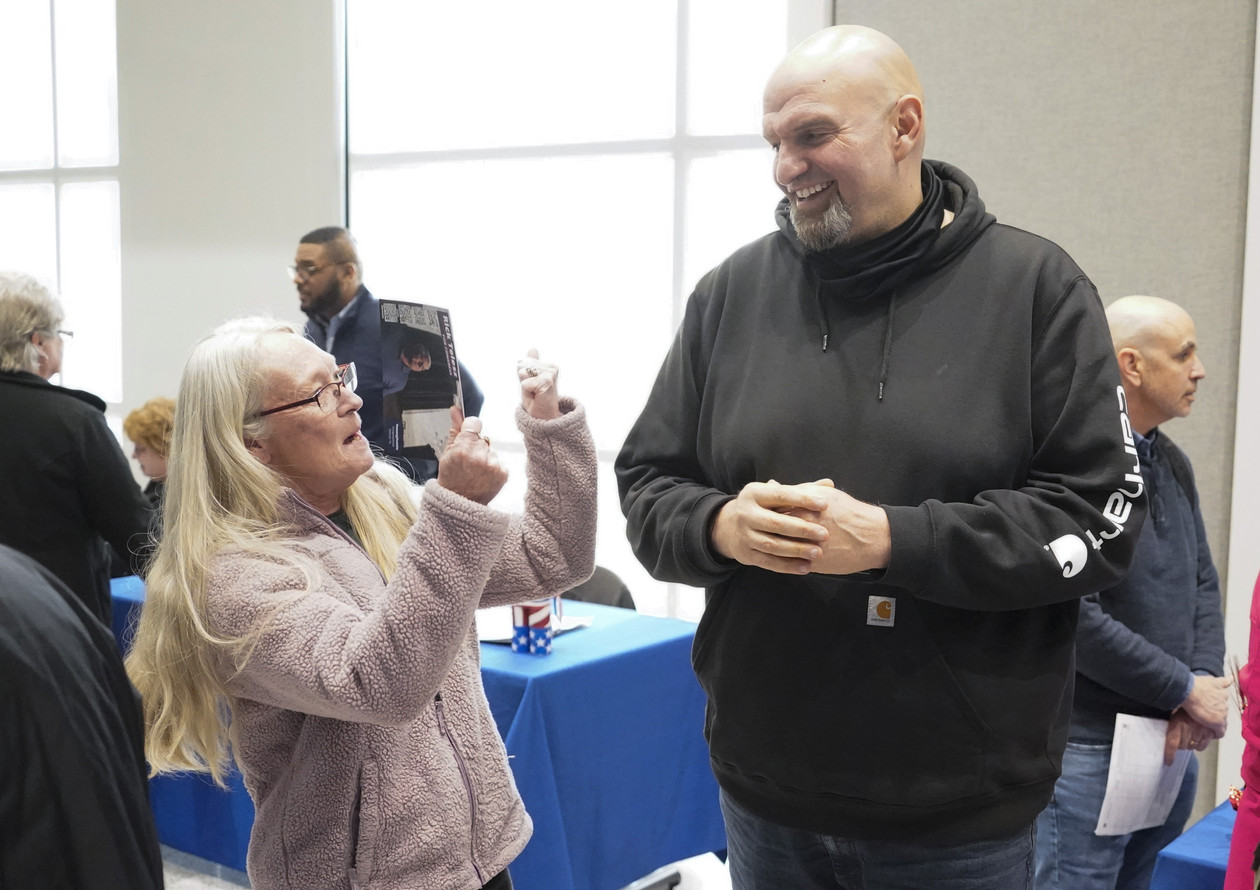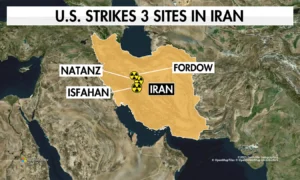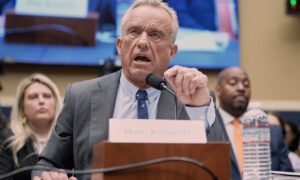It’s no secret that Democrats have a rural problem. The party’s share of the rural vote had been shrinking for decades even before Donald Trump arrived on the scene, deftly tapping into rural and working-class discontent and dragging levels of Democratic support to new lows in nonmetropolitan places.
Even as Trump’s popularity has waned among some demographics, Democrats have shaved little off the GOP’s rural margins. Indeed, few Democratic campaigns seem to have tried to claw back rural ground, with many candidates appearing simply to cede the rural vote to the MAGA crowd. As most candidates for state-wide office continue to put all their eggs in the urban and suburban voter basket, rural Democratic organizers and operatives from North Carolina to Texas to Arizona to New York complain about state party failures to enhance their rural infrastructure and initiatives.
As a scholar who studies rural people and places, I’ve noticed one Democratic candidate who defies this trend. While consultants and organizers talk about the need for rural talking points and investments in rural newspaper and radio buys, this politician has deployed the most obvious strategy for making inroads with rural voters: He showed up in every county in his state.
Then, he did something really remarkable: He showed up again.
That candidate is John Fetterman, who secured the Democratic nomination for U.S. Senate in Pennsylvania’s May primary with a robust 59 percent of the vote and currently holds the lead in general election polling.
Fetterman lived up to his “Every County, Every Vote” slogan. On a single Saturday in early May, for example, he visited five counties in north-central Pennsylvania, part of the state’s “rural T” — the vast area which form a big “T” on the map between the Philadelphia and Pittsburgh metro areas and north to the New York state line.
Ten days later, in spite of a stroke that hospitalized him just a few days before the primary, Fetterman carried all 67 counties in the Democratic primary. In doing so, Fetterman didn’t just attend to the rural, he attended to what he often called the “ruby red” parts of the Keystone State. Trump carried all five of the counties Fetterman visited on that day in early May — Clinton, Potter, Tioga, Bradford and Northumberland — and he did so with at least 65 percent of the vote. In Potter County, four of five voters picked Trump. Many Democrats might see those counties as a waste of time, but in the primary, at least, showing up worked for Fetterman: He got 77 percent of the vote.
Fetterman is hardly the first Democratic candidate to make a show of an every-county tour. Indeed, it used to be the norm. When I was growing up in rural Arkansas in the 1970s and 80s, I recall Gov. Bill Clinton passing through my hometown each election cycle. (My family reminisced fondly for years about the day my sister, a teenaged waitress at Pearl’s Café, served Clinton coffee and a slice of pie.) Clinton showed up even though my county was home to a measly 8,000 folks, of whom less than a few thousand voted. It’s just how retail politics was done back in the day.
More recently, Beto O’Rourke conducted a 254-county campaign in 2018 when he ran against Ted Cruz for a U.S. Senate seat from Texas. O’Rourke lost, but by just 3 percent, and he and his running mate for lieutenant governor are now going out of their way to show up in the Lone Star State’s rural reaches. Likewise Chris Jones, Democratic nominee for governor of Arkansas, is on a 75-county tour of the Natural State as he challenges the Republican heir apparent, Sarah Huckabee Sanders.
But Fetterman may be the first candidate in recent memory to have visited each county in his state not once, but twice. When Fetterman became Pennsylvania’s lieutenant governor in 2019, he undertook a 67-county listening tour about cannabis legalization. Columnist Will Bunch of the Philadelphia Inquirer suggests this laid the groundwork for Fetterman’s widespread popularity, observing that when Fetterman returned to each county as a candidate for Senate, “he was shrouded in the purple haze of a political rock star.”
Fetterman’s primary strategy was, of course, the very antithesis of New York Sen. Chuck Schumer’s dismissal of a voting bloc Democrats used to rely on: “For every blue-collar Democrat we lose in western Pennsylvania,” Schumer said, “we will pick up two moderate Republicans in the suburbs in Philadelphia.” That was in the summer of 2016, and the senator was soon proved wrong. Pennsylvania was credited (or blamed, depending on your politics), along with Michigan and Wisconsin, with Hillary Clinton’s loss of the presidency. Trump beat her by about 44,000 votes in 2016 to win Pennsylvania’s 20 Electoral College votes. (Biden, who often referenced his scrappy Scranton roots, recovered in 2020 with a slightly wider margin of victory, 81,000 votes.)
The attention a high-profile candidate like Fetterman has paid to rural areas of his state may begin to ease the rural inferiority complex that’s been festering for decades, as rural economies have stagnated, small towns have lost population and country folks have become the butt of jokes. One 27-year-old woman in Westmoreland County, part of the Pittsburgh metropolitan area that struggles against the “Pennsyltucky” stereotype, praised Fetterman for showing up and speaking bluntly. “We’re not just silly hillbillies,” she told a New York Times reporter.
Fetterman has serious street cred when he speaks about crummy job markets and regional inequalities that bog down many nonmetro communities. Before seeking statewide office, he served for 13 years as mayor of Braddock, a down-and-out city of 1,721 near Pittsburgh. Fetterman has continued to live in Braddock — with his family, in a converted car dealership — even after he was elected lieutenant governor in 2018.
Issues of place — what rural sociologists call uneven development or spatial inequality — have long been front and center for Fetterman, as in his 2018 response to the Ballotpedia survey, “I am most passionate about policies that help our forgotten communities.” Fetterman’s wife, Gisele, struck a similar chord on the night of his primary victory. “This race we’re running, it’s a race … for every small town, for every person who calls those small towns home and for every person who’s considered leaving because they didn’t see enough opportunities.”









